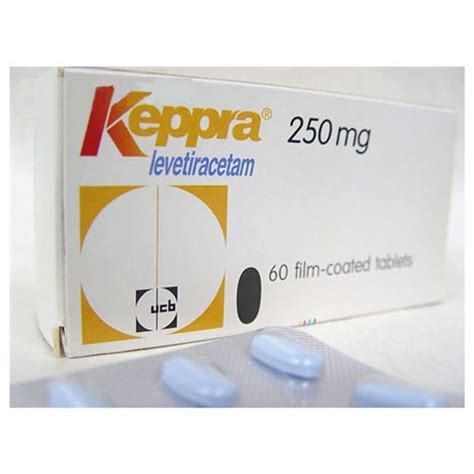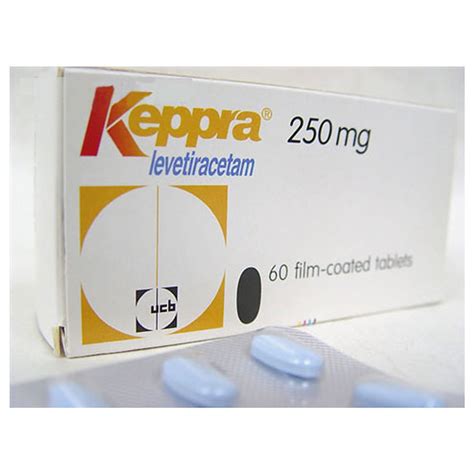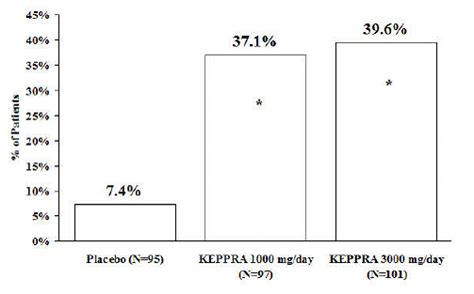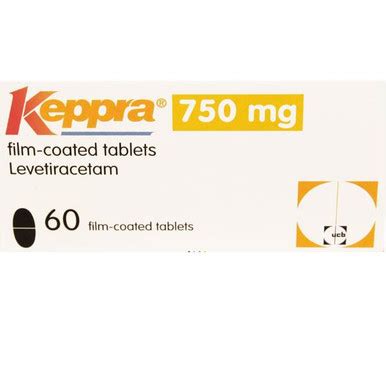Intro
Discover how Keppra for seizures effectively manages epilepsy, reducing seizure frequency with anticonvulsant properties, and learn about its usage, dosage, and potential side effects for optimal seizure control and improved quality of life.
Seizures are a complex and often debilitating condition that affects millions of people worldwide. They can be caused by a variety of factors, including genetics, head injuries, infections, and neurological disorders. One of the most effective treatments for seizures is medication, and Keppra is one of the most commonly prescribed anti-seizure medications. In this article, we will delve into the world of Keppra, exploring its benefits, working mechanisms, and potential side effects.
Seizures can have a significant impact on a person's quality of life, making everyday activities a challenge. They can cause physical harm, emotional distress, and social isolation. However, with the right treatment, it is possible to manage seizures and reduce their frequency and severity. Keppra, also known as levetiracetam, is a medication that has been shown to be effective in controlling seizures in people with epilepsy. It is often prescribed in combination with other medications to achieve optimal results.
The importance of finding the right treatment for seizures cannot be overstated. Seizures can be unpredictable and debilitating, making it difficult for people to live normal lives. They can also have a significant impact on mental health, causing anxiety, depression, and stress. Keppra has been shown to be effective in reducing the frequency and severity of seizures, allowing people to regain control over their lives. In addition to its efficacy, Keppra has also been shown to have a relatively favorable side effect profile, making it a popular choice among healthcare providers.
What is Keppra?

Keppra has been shown to be effective in reducing the frequency and severity of seizures in people with epilepsy. It is often prescribed in combination with other medications to achieve optimal results. Keppra has also been shown to have a relatively favorable side effect profile, making it a popular choice among healthcare providers. However, like all medications, Keppra can cause side effects, including dizziness, drowsiness, and nausea.
How Does Keppra Work?
Keppra works by reducing the abnormal electrical activity in the brain that causes seizures. It does this by binding to the SV2A protein, which is involved in the regulation of synaptic vesicle function. By binding to this protein, Keppra reduces the release of excitatory neurotransmitters, which can contribute to seizure activity. This results in a decrease in the frequency and severity of seizures.Keppra has also been shown to have a number of other effects on the brain, including reducing inflammation and oxidative stress. These effects may contribute to its anti-seizure activity and may also have neuroprotective effects. Overall, the exact mechanism of action of Keppra is complex and not fully understood, but it is clear that it has a number of effects on the brain that contribute to its anti-seizure activity.
Benefits of Keppra

- Efficacy: Keppra has been shown to be effective in reducing the frequency and severity of seizures in people with epilepsy.
- Safety: Keppra has a relatively favorable side effect profile, making it a popular choice among healthcare providers.
- Convenience: Keppra is available in tablet and oral solution forms, making it easy to administer.
- Flexibility: Keppra can be used in combination with other medications to achieve optimal results.
Overall, Keppra is a highly effective and safe medication that can be used to treat a variety of seizure disorders. Its convenience and flexibility make it a popular choice among healthcare providers, and its efficacy and safety make it a popular choice among patients.
Side Effects of Keppra
Like all medications, Keppra can cause side effects. These can include:- Dizziness
- Drowsiness
- Nausea
- Vomiting
- Headache
- Fatigue
These side effects are usually mild and temporary, but in some cases, they can be more severe. It is essential to talk to a healthcare provider if you experience any side effects while taking Keppra.
Who Should Take Keppra?

It is essential to talk to a healthcare provider before taking Keppra, as they can determine if it is the right medication for you. They will consider your medical history, the type and severity of your seizures, and any other medications you are taking before making a decision.
How to Take Keppra
Keppra is typically taken twice a day, with or without food. The dosage will depend on the individual and the type and severity of their seizures. It is essential to follow the instructions provided by your healthcare provider and to take the medication exactly as directed.It is also essential to keep track of your seizures while taking Keppra, as this can help your healthcare provider determine if the medication is working effectively. You should also talk to your healthcare provider if you experience any side effects or if you have any concerns about taking Keppra.
Interactions with Other Medications

- Other anti-seizure medications
- Blood thinners
- Antibiotics
- Antihistamines
It is essential to talk to a healthcare provider before taking Keppra, as they can determine if it is safe to take with other medications. They will consider your medical history, the type and severity of your seizures, and any other medications you are taking before making a decision.
Precautions and Warnings
Keppra can cause a number of precautions and warnings, including:- Suicidal thoughts and behaviors
- Allergic reactions
- Severe skin reactions
- Blood cell disorders
It is essential to talk to a healthcare provider if you experience any of these precautions and warnings while taking Keppra.
Conclusion and Next Steps

If you are considering taking Keppra, it is essential to talk to a healthcare provider to determine if it is the right medication for you. They will consider your medical history, the type and severity of your seizures, and any other medications you are taking before making a decision. You should also keep track of your seizures while taking Keppra, as this can help your healthcare provider determine if the medication is working effectively.
We invite you to share your thoughts and experiences with Keppra in the comments below. Have you taken Keppra for seizures? What were your experiences? Do you have any questions or concerns about taking Keppra? Share your story and help others who may be considering this medication.
What is Keppra used for?
+Keppra is used to treat partial onset seizures, myoclonic seizures, and tonic-clonic seizures in people with epilepsy.
How does Keppra work?
+Keppra works by reducing the abnormal electrical activity in the brain that causes seizures. It does this by binding to the SV2A protein, which is involved in the regulation of synaptic vesicle function.
What are the side effects of Keppra?
+Keppra can cause a number of side effects, including dizziness, drowsiness, nausea, vomiting, headache, and fatigue. These side effects are usually mild and temporary, but in some cases, they can be more severe.
Can I take Keppra with other medications?
+Keppra can interact with other medications, including other anti-seizure medications, blood thinners, antibiotics, and antihistamines. It is essential to talk to a healthcare provider before taking Keppra with other medications.
How long does it take for Keppra to start working?
+Keppra can start working within a few days to a few weeks after starting treatment. However, it may take several months to achieve optimal results.
